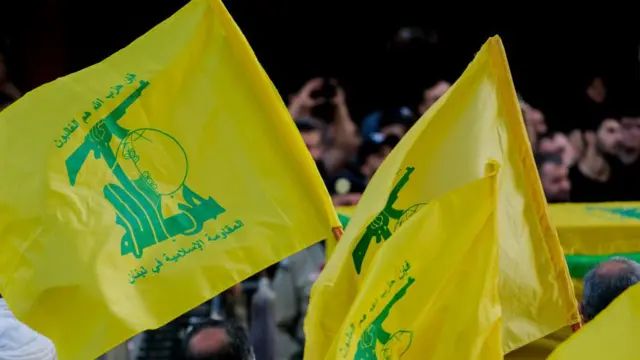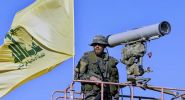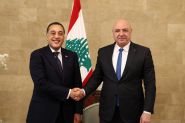
A year after the assassination of its leader Hassan Nasrallah in an Israeli strike on Beirut on September 27, 2024, Hezbollah is quietly attempting to rebuild its shattered leadership and reassert its influence. According to a detailed report by Le Figaro correspondent Georges Malbrunot, the Shia militia now operates in a state of semi-clandestinity, forced to overhaul its military and political structures after a succession of humiliations that shook the very core of its power.
Leadership in Disarray
Le Figaro describes the chaos that engulfed Hezbollah following the killing of Nasrallah and his presumed successor, Hashem Safieddine. In Beirut’s southern suburbs, Dahiyeh, the group’s stronghold, senior officials went into hiding, sleeping in cars or at trusted relatives’ homes.
“For ten days, everyone was lost, like a body in a coma,” a Hezbollah member told the French daily. The group’s leadership, decapitated by Israeli airstrikes, had gone silent. Fighters in southern Lebanon continued to engage Israeli forces based on prearranged plans, but most were ultimately killed, around 1,200, according to Le Figaro’s sources.
Two weeks later, Iranian officers led by Quds Force commander Esmail Qaani stepped in to restore a semblance of military command. Yet the political vacuum persisted.
Divisions Over the War
Malbrunot’s report revisits Hezbollah’s internal divisions following Hamas’s October 7, 2023 attack on Israel. Two camps emerged: one led by Nasrallah, who favored limited engagement out of solidarity with Hamas, and another led by Safieddine and Radwan Force commanders, who pushed for a full-scale offensive in northern Israel.
Nasrallah’s decision to maintain “minimal solidarity” proved disastrous for southern Lebanon, which bore the brunt of Israel’s retaliation. “Either we go to war, or we don’t,” lamented a Hezbollah fighter quoted in the piece.
Deep Infiltration and Espionage
Beyond battlefield losses, Hezbollah’s exposure to Israeli intelligence operations has become a defining vulnerability. Several senior figures were eliminated, some betrayed by relatives or intimate partners.
Among them was senior commander Fouad al-Shokr, killed after Israel monitored his mistress. Within Hezbollah ranks, he became sarcastically known as “the martyr of lust,” Le Figaro reports.
“Nasrallah was deceived,” said a technician close to the group, explaining that the longtime leader, isolated in his bunker, had relied on distorted intelligence spread by Israeli infiltrators.
Under Tehran’s supervision, Hezbollah has since reorganized its leadership. MP Ali Fayad told Le Figaro that a new, younger, and more discreet military structure has been put in place. Mid-level cadres have been replaced, and all sensitive communications now take place in person to avoid Israeli interception.
The South Under Tight Watch
In southern Lebanon, reconstruction is slow and Hezbollah’s visibility diminished. According to Le Figaro, the Lebanese Army has deployed only 2,000 soldiers in the region, far fewer than the 10,000 stipulated under the November 27, 2024 ceasefire.
“The army remains discreet to avoid provoking Hezbollah, as the situation is still unstable,” a senior Lebanese officer told the paper.
Across towns like Naqoura, Alma al-Shaab, and Tibnin, destruction and poverty linger. Israeli drones continue to monitor the area, and Gulf states are making any financial assistance conditional on Hezbollah’s disarmament, a demand that remains far from being met.
Despite these challenges, Hezbollah continues to draw support from its Shia base. “Most of us believe the Lebanese government can’t defend us,” said a young resident of the South. “So, between two evils, we choose the lesser, Hezbollah.”
A Western diplomat told Le Figaro that Hezbollah had agreed to disarm south of the Litani River but was resisting interference further north. “Israel’s continued strikes show it believes most of its mission has already been accomplished,” the diplomat added.
A Wounded but Enduring Force
Politically, Hezbollah remains a key player, with 27 members in parliament, influence in parts of the army, and a still-functioning social apparatus. Yet its dominance has faded. “Its MPs no longer inspire fear, they’re openly criticized in parliament,” a Lebanese lawmaker told Le Figaro on condition of anonymity.
Prime Minister Nawaf Salam now advocates gradual disarmament across Lebanon, backed by Saudi Arabia and the United States. President Joseph Aoun, however, warns against confrontation: “It’s better not to challenge a wounded beast,” Le Figaro quotes him as saying.
Once viewed as invincible, Hezbollah now finds itself weakened, exposed, and driven underground. But as Malbrunot concludes, it remains “a central player in Lebanon, diminished, forced into secrecy, yet still standing: at once a militia, a party, and a community struggling to survive.”



Comments